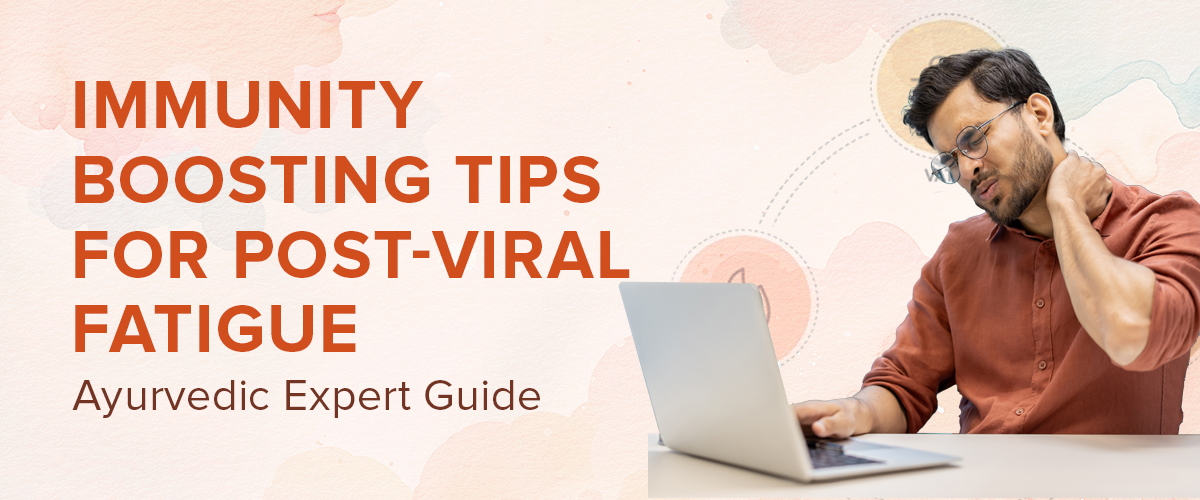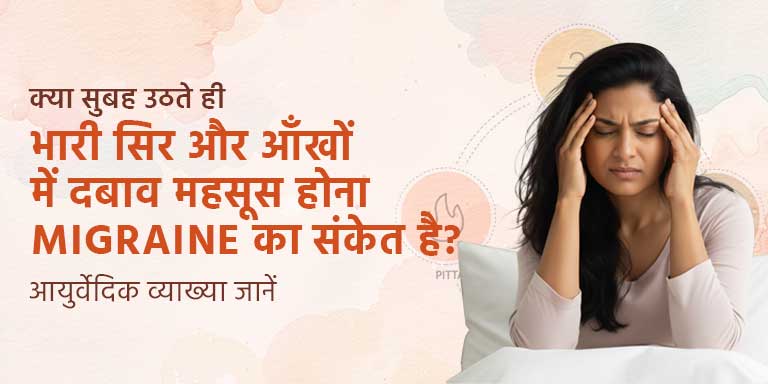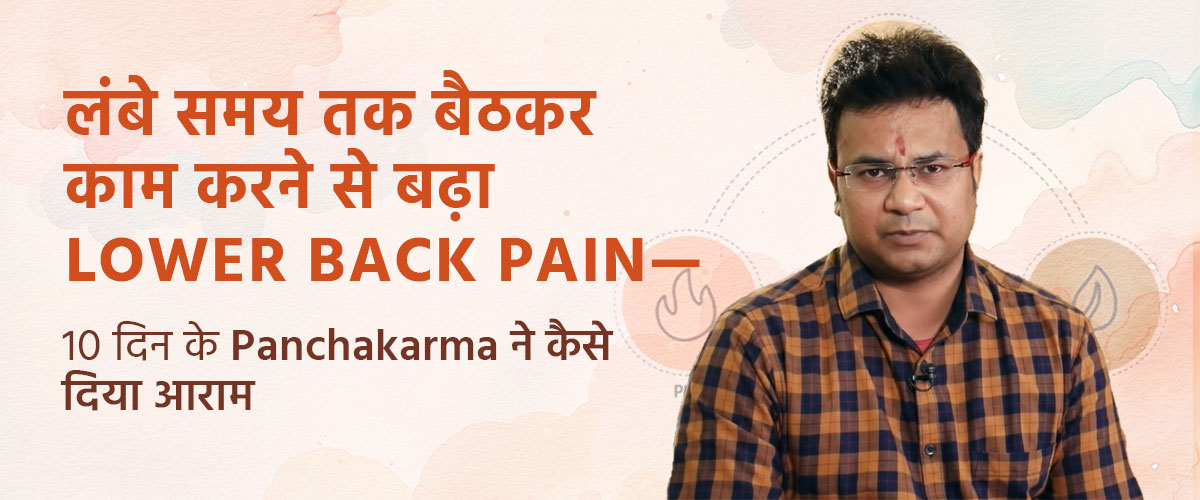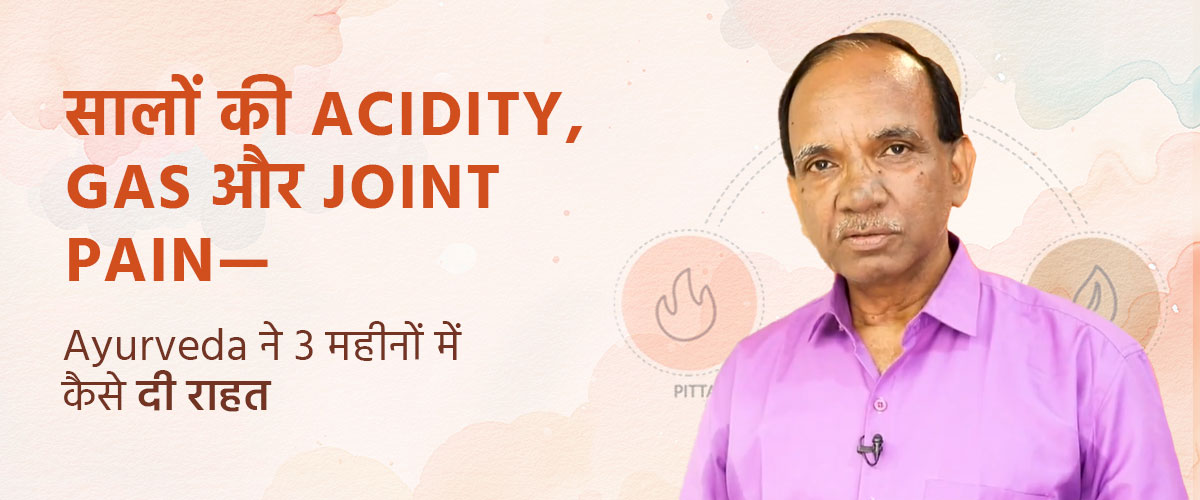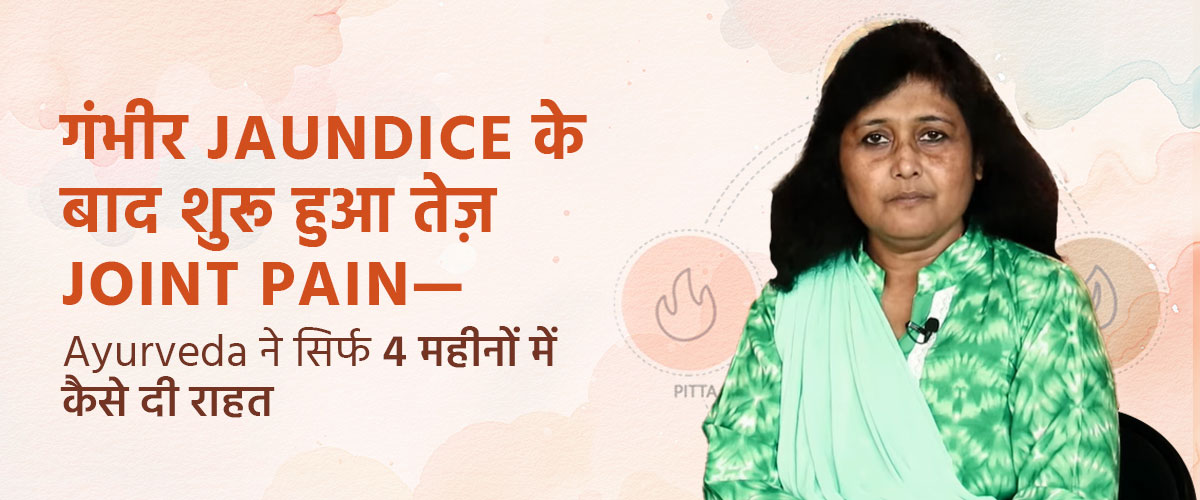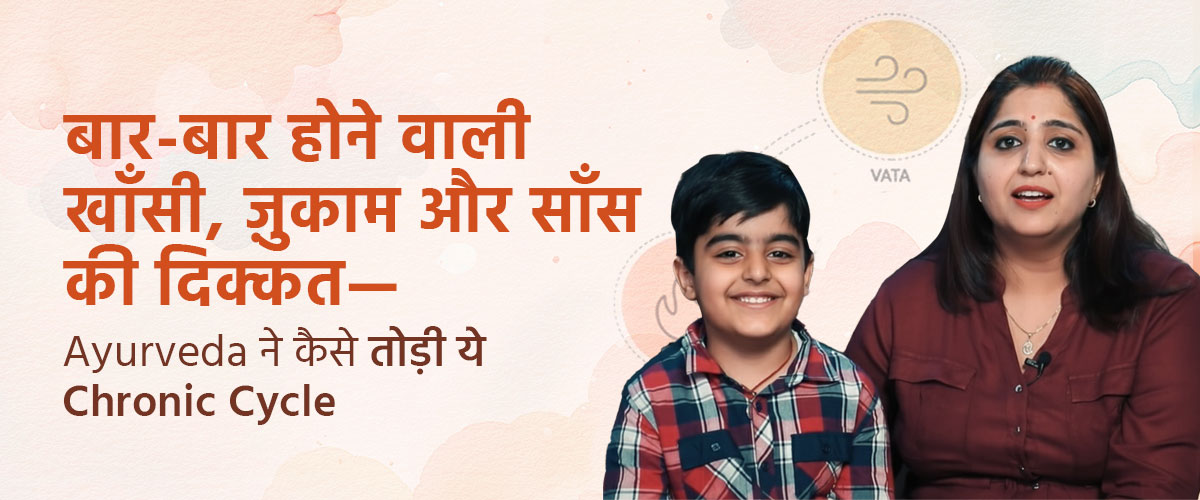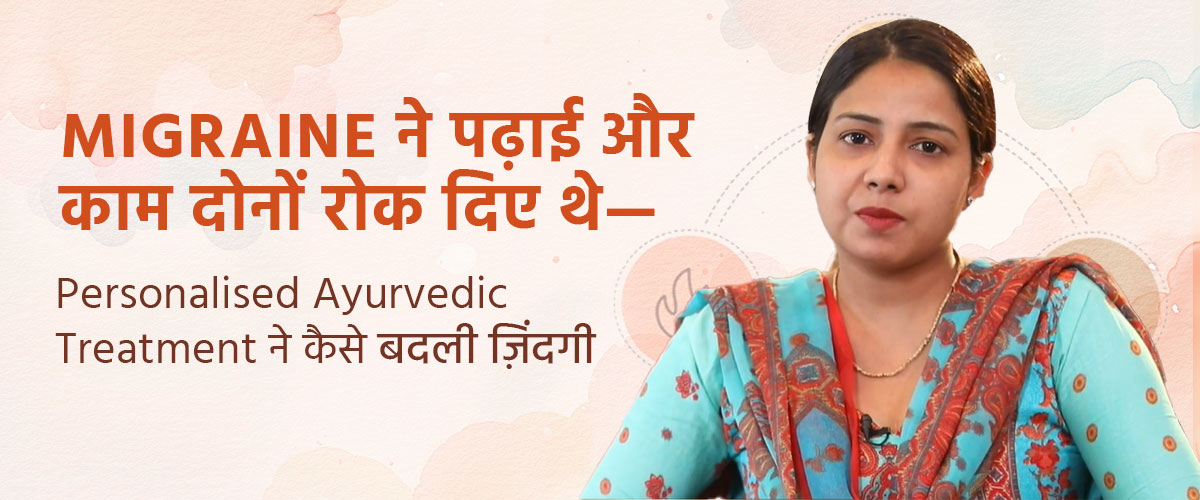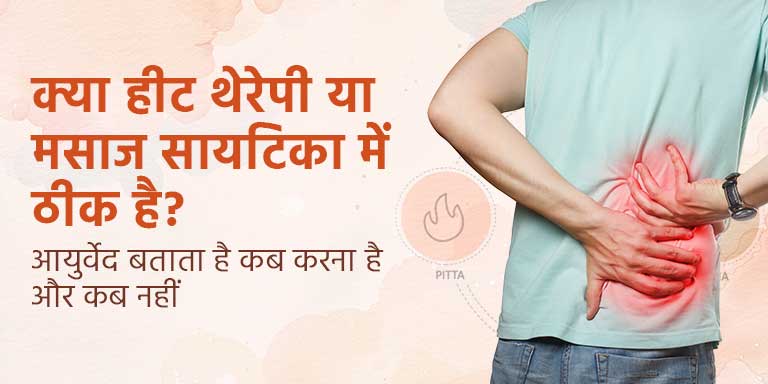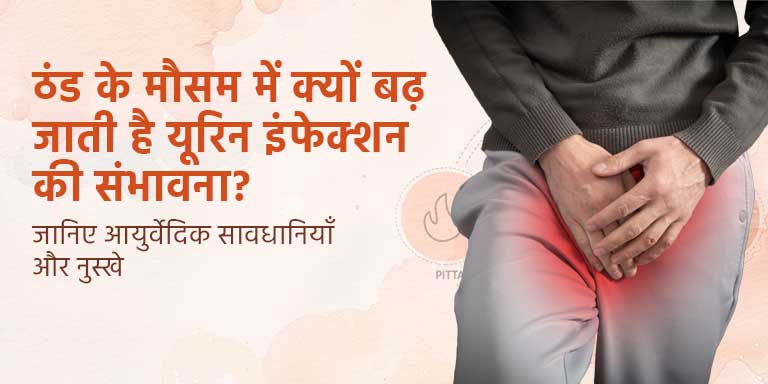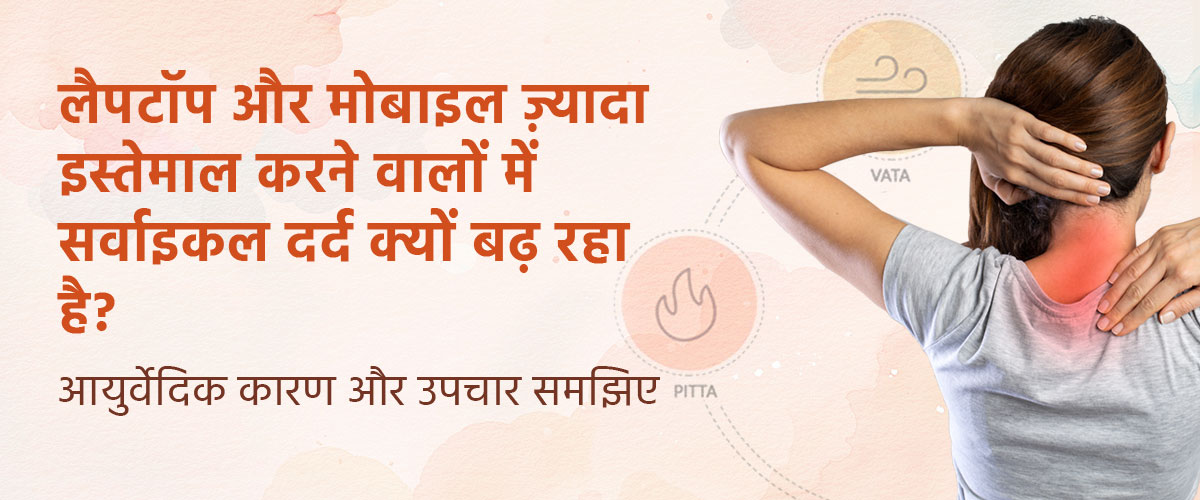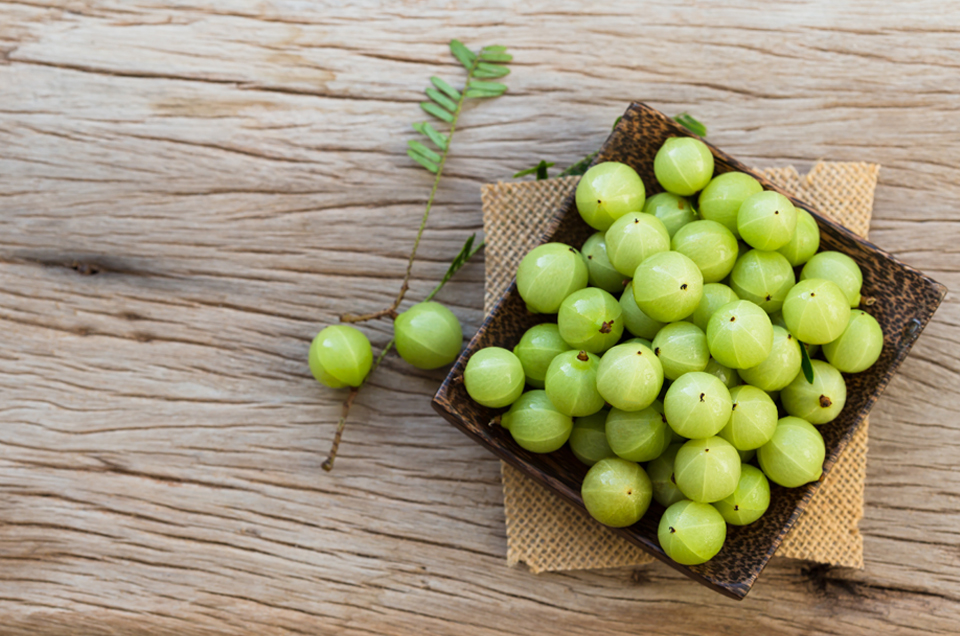A recent multi-centre study across India found that 16.5% of hospitalised COVID-19 patients continued to experience symptoms like fatigue, breathlessness, or muscle pain even a year after discharge.
If you're one of those people who feels these symptoms after a viral infection like COVID, you might notice that everyday tasks seem harder than before. Ayurveda offers you a gentle, natural, and proven way to get better and stay healthy for a long time.
In this blog, we will show you how Ayurveda sees post-viral fatigue and immunity, and we will suggest some simple things you can do at home, like changing your diet, using herbs, changing your lifestyle, to feel better with post-viral fatigue.
What Is Post-viral Fatigue and Why Does It Weaken Your Immunity?
After you recover from a viral infection like the flu, dengue, or corona, you might expect your body to bounce back to normal. But that doesn’t always happen. Many people feel tired, dull, and low on energy even weeks after the fever or cough is gone. This condition is known as post-viral fatigue.
What does post-viral fatigue feel like?
You might feel:
- Being tired all the time, even after resting
- Pain in the muscles or body
- Not being able to focus or having brain fog
- Not enough energy to do simple things
This type of tiredness lasts because your body is constantly fighting the virus. Your body is still working hard to heal and get better, even though the infection is gone. Your immune system might not work as well as it should during this time because it is under stress.
How Does Ayurveda Explain Post-viral Fatigue and Low Immunity?
Ayurveda has a very different and holistic view of healing. It doesn't just treat the symptoms; it also works on your overall balance, including your mind, body, and immune system.
Low Agni (digestive fire)
Ayurveda says that your Agni, or digestive fire, gets weaker when you are sick. When Agni is weak:
- Food doesn't digest well.
- Nutrients are not getting into the body properly.
- Toxins, which are known as Ama, build up in your body.
This Ama moves through the body, blocks channels, and makes you feel tired, heavy, and slow. If you see a white coating on your tongue, have trouble digesting food, or have bad breath, these are all signs that toxins are building up.
Dosha imbalance
Imbalance in Vata and Kapha doshas can often cause post-viral fatigue:
- Vata makes you feel anxious, restless, weak, dry, and in pain.
- Kapha makes you feel slow, heavy, foggy-headed, and full of mucus.
Your healing process becomes longer when your body's natural balance gets disturbed.
Ojas (Inner Strength)
Ojas can be described as the purest form of health and immunity in Ayurveda. It is what keeps your body strong and stable. Your Ojas gets low after a viral infection.
Getting Ojas back is an important part of getting better. You can do this by eating healthy foods, getting good sleep, using natural herbs, and calming your mind. Your body starts to feel alive again when your Ojas gets better and your immune system gets stronger.
Which Ayurvedic Foods Help Boost Immunity During Post-Viral Recovery?
Your body requires gentle care after recovering from a viral illness. And the first step starts in your kitchen. Ayurveda suggests that food is medicine, especially when one is ill.
Ayurveda strongly suggests that you eat:
- Meals that are warm, fresh, and made at home.
- Meals that are made fresh (avoid food that has been sitting for hours).
Don't eat food from outside or food that comes in packages. Your digestion is still weak, so you need light, healthy meals instead of heavy, processed junk.
Foods that help your immune system recover
These are some simple foods that can help you get your strength back:
- Moong dal is easy to digest and has a lot of protein.
- Khichdi is a light but filling meal made with rice, dal, ghee, and mild spices.
- Ghee helps with digestion and makes Ojas (vital energy) stronger.
- Steamed vegetables like carrots, pumpkin, and spinach that have been cooked until soft and lightly seasoned
Seasonal fruits like apples, papayas, bananas, and oranges. If you feel heavy or congested, stay away from cold or sour fruits.
These foods are good for your gut, give you energy, and help your body heal.
What to avoid?
Stay away from:
- Cold food and drinks (refrigerated items or ice water)
- Fried or heavy meals (they slow digestion)
- Packaged and canned foods (they contain preservatives)
- White sugar and excessive salt
All of these put extra load on your already tired digestive system and weaken your immunity further.
What Ayurvedic Herbs and Supplements Can Support Your Immune System?
Ayurveda says that herbs and natural supplements can help your body heal faster, in addition to eating well.
Ayurvedic herbs that are safe and effective
As per Ayurveda, these herbs can help strengthen your immune system and heal your body:
- Amla (Indian gooseberry) is high in vitamin C and boosts energy and immunity.
- Giloy (Guduchi) helps get rid of toxins and makes you less likely to get sick.
- Ashwagandha helps with sleep issues, boosts energy levels, and makes you stronger.
- Tulsi is a natural anti-viral and helps the lungs heal.
- Mulethi (Liquorice) calms the throat and makes the lungs stronger.
- Trikatu is a mix of dry ginger, black pepper, and long pepper that helps with digestion and gets rid of toxins.
How Can You Improve Your Digestion (Agni) to Build Strong Immunity?
Your digestive fire or Agni is at the heart of recovery. If your Agni is weak, even the best foods or herbs won’t be absorbed properly. That’s why Ayurveda places huge importance on restoring digestion first.
Why digestion is important after a major illness
- Digestion helps convert food into energy
- It removes leftover waste and toxins
- It boosts the immune system by nourishing your tissues
- If your digestion is poor, it leads to a buildup of Ama or sticky toxins that slow down recovery.
Simple tips to strengthen your Agni
You can bring your body back to rhythm with these simple practices:
- Sip warm water throughout the day to clear toxins
- Chew a piece of ginger with salt before meals to boost your digestion
- Eat meals on time, especially lunch around noon when Agni is strongest
- Avoid snacking too often, which confuses digestion
- Eat only when you feel hungry and don’t overload your stomach
When your digestion improves, your energy returns, your sleep gets better, and your body begins to truly heal.
How Does Stress Affect Your Immunity and How Can You Manage It Naturally?
When you’re recovering from a viral illness, your body is already under pressure. Adding mental stress on top of that can slow down your healing even more.
Simple Ayurvedic ways to manage stress
Small, natural habits can make a big difference in calming your mind and rebuilding your strength.
Abhyanga (Self-oil massage): Gently massaging your body with warm sesame or coconut oil relaxes your muscles, improves blood flow, and calms the nervous system.
Shirodhara: A gentle flow of warm oil on your forehead, when done under expert care, can reduce anxiety and help you sleep better.
Music therapy: Listening to calming music, especially classical or natural sounds, soothes the mind and helps you breathe slower and deeper.
Along with these practices, you can also engage in meditation and other practices like:
- Practice 10–15 minutes of meditation or deep breathing daily. Even sitting quietly and watching your breath helps settle racing thoughts.
- Keep your surroundings peaceful. Avoid loud noises, clutter, and chaos. Light natural incense, keep a plant near your bed, or let in fresh air and sunlight.
How Can Detoxification Support Your Immunity After a Viral Illness?
Even after the virus leaves your body, residual toxins may stay behind. These toxins, called Ama in Ayurveda, are sticky, undigested wastes that block your body’s natural healing.
You may feel heavy, dull, bloated, or constantly tired. That’s your body’s way of saying it needs a gentle cleanse.
Simple detox methods you can do at home
You don’t need strong fasting or extreme diets. Ayurveda recommends gentle, natural detox methods:
- Start your day with warm water (add a slice of lemon or ginger if needed)
- Drink herbal teas made of cumin, fennel, coriander, or tulsi
- Eat light and easy-to-digest food like khichdi or steamed vegetables
- Include fresh fruits like papaya, apple, or pomegranate
- Rest well and don’t rush into your old routine
Final Thoughts
Feeling low even after your fever is gone is a sign that your body is asking for deeper care. Post-viral fatigue can leave you drained, but with the right Ayurvedic guidance, you don’t have to stay stuck in that tired zone for long.
Start with small, consistent steps: eat warm homemade food, listen to your body, get good sleep, and include calming habits like self-massage and breathing exercises.
If you still feel weak after a few weeks, it’s okay to ask for help. A Jiva-certified Ayurvedic expert can guide you with the right herbs, diet, and lifestyle for your body.
FAQs
1. How to heal post-viral fatigue?
Give your body proper rest, eat warm and fresh meals, stay hydrated, and follow a simple routine. Don’t rush because healing takes time, especially after a strong viral illness.
2. How to build up your immune system after a viral infection?
Eat nourishing food, sleep well, reduce stress, and include Ayurvedic herbs like Amla or Giloy under eexpert advice. Your body needs gentle care to regain full strength.
3. Which foods boost immunity faster?
Fresh fruits, cooked vegetables, moong dal, khichdi, ghee, and spices like turmeric and ginger help boost immunity when eaten warm and freshly prepared at home.
4. How long does immunity last after a virus?
It depends on your health, age, and lifestyle. In many cases, your immune system may stay low for weeks. Support it daily through food, rest, and Ayurveda.
5. How to recover from viral fever fatigue?
Start slow. Focus on light exercise, good digestion, proper hydration, and regular meals. Avoid overworking or late nights while your body is still regaining energy.
6. Can I start exercising after a viral infection?
Yes, but only after your body feels ready. Begin with light walks or yoga. Avoid intense workouts until your strength returns fully. Listen to your body’s signals.



